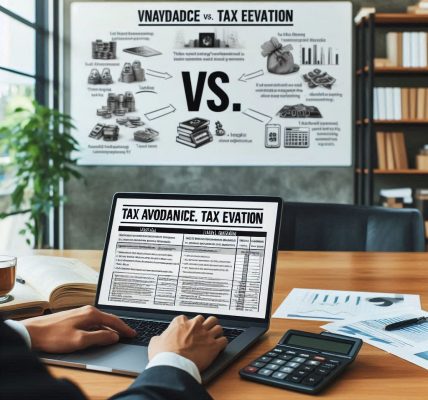Introduction
As a salaried professional, managing your taxes efficiently can help you save a significant amount of money. The Indian tax system provides several deductions and exemptions under the Income Tax Act, 1961, which, if used wisely, can lower your taxable income. This guide will walk you through smart and legally compliant tax-saving strategies to optimize your financial planning.
1. Understand the Tax Regime: Old vs. New
Before planning your tax savings, you must decide whether to opt for the Old Tax Regime or the New Tax Regime introduced in Budget 2020.
- Old Tax Regime: Offers multiple deductions under various sections such as 80C, 80D, HRA, LTA, and more.
- New Tax Regime: Provides lower tax rates but does not allow most deductions and exemptions.
Which One to Choose?
If you have significant investments in tax-saving instruments, the old regime might be better. If you prefer simplified taxation with lower rates, the new regime could be a good choice.
2. Maximize Section 80C Deductions (Up to ₹1.5 Lakh)
Under Section 80C, you can claim deductions up to ₹1.5 lakh by investing in:
- Employee Provident Fund (EPF) – A mandatory contribution for salaried employees that qualifies for a tax deduction.
- Public Provident Fund (PPF) – A long-term investment option with tax-free returns.
- Equity Linked Savings Scheme (ELSS) – A tax-saving mutual fund with high return potential.
- National Pension System (NPS) – Provides additional tax benefits under Section 80CCD(1B).
- Tax-Saving Fixed Deposits (FDs) – A 5-year lock-in FD eligible for tax deduction.
- Life Insurance Premiums – Policies that provide life cover and tax benefits.
3. Avail Home Loan Tax Benefits
If you have a home loan, you can claim tax deductions under multiple sections:
- Section 80C: Deduction on principal repayment (up to ₹1.5 lakh).
- Section 24(b): Deduction on interest paid (up to ₹2 lakh for a self-occupied house).
- Section 80EE/80EEA: Additional deduction for first-time home buyers.
4. Optimize House Rent Allowance (HRA) Exemption
If you live in a rented house and receive House Rent Allowance (HRA) as part of your salary, you can claim HRA exemption under Section 10(13A). The exemption amount depends on your salary, actual rent paid, and the city you reside in.
If you don’t receive HRA but pay rent, you can claim a deduction under Section 80GG (subject to conditions).
5. Reduce Tax Liability Through NPS Investments
- Additional tax deduction of ₹50,000 under Section 80CCD(1B) for contributions made to NPS.
- If your employer contributes to NPS, you can claim a deduction under Section 80CCD(2).
6. Save Tax on Medical Expenses & Insurance Premiums
- Section 80D: Deduction for health insurance premiums:
- Self, spouse, and children: ₹25,000 (₹50,000 if senior citizens).
- Parents’ insurance: Additional ₹25,000/₹50,000.
- Preventive health check-ups allow a deduction of ₹5,000.
- Section 80DD/80DDB: Tax benefits for medical treatment of dependents with disabilities or specified diseases.
7. Leave Travel Allowance (LTA) for Tax Savings
Employees can claim LTA exemption on the actual cost of domestic travel (air, rail, or road) incurred during official leaves. This benefit is available twice in a block of four years.
8. Claim Standard Deduction & Other Allowances
- Standard Deduction: A fixed deduction of ₹50,000 for all salaried employees.
- Professional Tax: Deductible under Section 16.
- Food Coupons (Sodexo, Zeta, etc.): Tax-free up to ₹2,200 per month.
9. Use Section 80G for Donations
If you donate to approved charitable institutions, you can claim deductions under Section 80G. The deduction can be 50% or 100% of the donated amount, depending on the organization.
10. Claim Reimbursement for Work-Related Expenses
Many employers provide tax-free allowances for:
- Internet & Telephone Bills
- Uniform & Equipment Allowance
- Books & Periodicals
Ensure to submit proper bills to claim these benefits without legal complications.
11. Tax Planning for Bonuses and Investments
- If you expect a bonus, try negotiating its disbursal across two financial years to reduce taxable income.
- Invest in tax-efficient mutual funds (ELSS) or government bonds to reduce tax liability.
12. File ITR on Time & Avoid Penalties
Filing your Income Tax Return (ITR) before the deadline ensures you claim all deductions and avoid penalties.
- Last Date for ITR Filing: Usually 31st July (can be extended).
- Penalty for Late Filing: Up to ₹10,000.
13. Keep Proper Documentation
Ensure you maintain all tax-related documents like:
- Salary slips
- Investment proof
- Rent receipts
- Medical bills
Proper documentation helps avoid issues during tax assessment or scrutiny.
14. Consult a Tax Expert When Needed
While DIY tax planning is great, consulting a chartered accountant (CA) or tax expert can help optimize your tax savings further and ensure compliance with changing tax laws.
Conclusion
Smart tax planning can help you maximize your savings while staying legally compliant. By understanding tax exemptions, investing in the right financial instruments, and keeping track of deductions, you can significantly reduce your tax burden.




